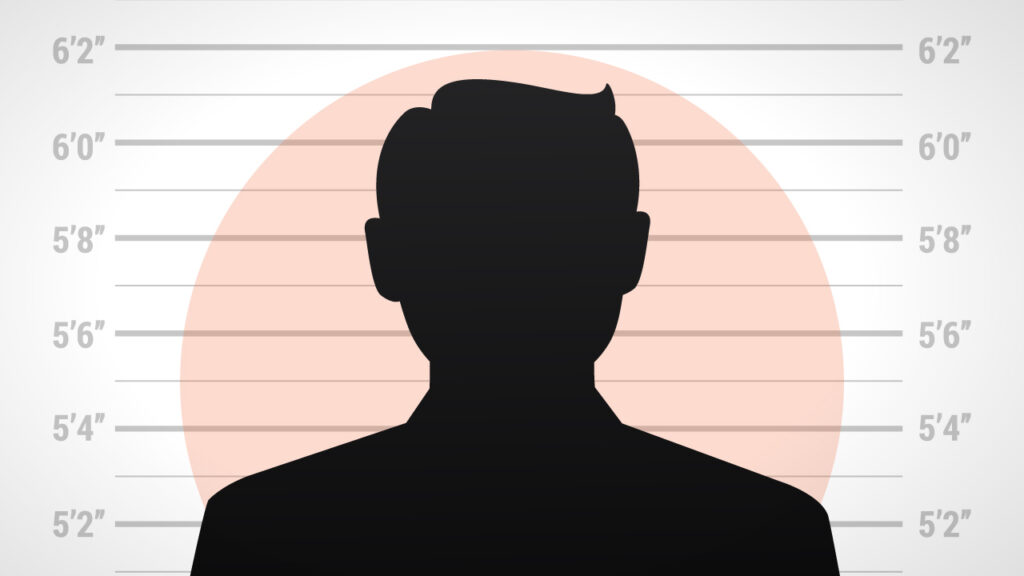Former President Donald Trump is no stranger to finding ways to publicize his name and image. But his latest foray into commercial use of his viral mugshot image has pushed him into potentially murky legal waters that creates a copyright conundrum.
The saga began in August when Trump was arrested in Fulton County, Georgia on charges related to his efforts to overturn the state’s 2020 election results. Shortly after his booking and processing at the county jail, Trump’s campaign spied a commercial opportunity.
Capitalizing on the viral mugshot image, the campaign emblazoned Trump’s mugshot onto, t-shirts, mugs, bumper stickers and other swag, most bearing the slogan “Never Surrender.” Proof that a picture can be worth a thousand words (or in this case, millions of dollars), in just a few short weeks, the Trump mugshot merch generated over $7.1 million in profits.
Here’s the controversy: Experts contend that use of the infamous photo may violate copyright law because the Fulton County Sheriff’s Office, who booked Trump and took the infamous photo, has legal ownership of it. Does the sheriff have a case against the former president? Are the Trump mugshot merch earnings illicit, and if so, will the Trump campaign owe authorities a share of the windfall?
Who Owns the Mugshot?
Under longstanding copyright principles, an entity that creates an original work — be it a photograph, a painting, lyrics to a song, a recording or a novel — typically retains exclusive rights to copy, distribute, modify, display or license the work commercially and profit from it. Using the copyrighted material without permission constitutes infringement, subject to civil damages.
For mugshots specifically, law enforcement agencies have strong claims to ownership rights. The police bear the full cost burden of camera equipment, digital storage and photographer salaries required to produce booking photos. Given these investments of resources, there’s a strong case that a court would confer copyright ownership to the arresting agency. That means the agency has the right to release the photo as public record, and that no other parties may profit off the agency’s property without express permission. But in order for copyrights to be asserted in litigation, they first need to be registered with the U.S. Copyright Office — this is a step beyond the common law rights that are conferred to a work immediately upon its creation.
Has Trump Infringed Copyright Law?
By plastering the mugshot across unlicensed merchandise, the Trump campaign may have infringed the Fulton County Sheriff Office’s exclusive copyrights. The shirts, mugs, stickers and other items feature Trump’s exact mugshot image without creative alteration. This brings up a question of fair use:
Is Fair Use a Valid Defense?
What is fair use? It allows limited use of copyrighted material without permission, primarily for purposes such as criticism, comment, news reporting, teaching or research purposes. However, fair use is subject to specific criteria, and commercial exploitation normally falls outside this legal scope.
Some creative works have adapted fair use for expressive, or recently, charitable purposes. For instance, soon after Trump’s arrest and booking photo, the band Green Day created a t-shirt of their 1997 album Nimrod, using Trump’s covered face in place of the original artwork with the caption: “Good Riddance.” Profits from the $35 limited-edition shirts, which were sold for only 72 hours, benefited victims of the Maui wildfires via Greater Good Music.
Has Trump exercised similar fair use by using a picture of himself, or has he misappropriated it? The Trump campaign products feature no creative transformation or commentary — simply the unlicensed image. This copying to generate merch sales is the point where a court could draw the legal line at fair use.
Gauging the Potential Outcomes
No motions or lawsuits have been filed by the Fulton County Sheriff’s Office. As a public agency with far fewer resources for litigation than their potential opponent, the office may be avoiding a prolonged legal battle, and may seek no damages or opt for a quick settlement for the unauthorized usage. As reported in the New York Post regarding the office’s finances, Fulton County Sheriff Patrick Labat has “pleaded with commissioners for funds that he said he desperately needs for the prison, describing how ‘hundreds of toilets and sinks’ are out of order.”
However, the sheriff’s office could attempt to mount a copyright infringement claim with the evidence at hand .They would need to first register the copyright with the U.S. Copyright Office.
What Are the Financial Implications?
We can gain an idea of how much the Trump campaign could potentially owe the Fulton County Sheriff’s Office. According to the U.S. Copyright Office, “Anyone found to have infringed a copyrighted work may be liable for statutory damages up to $30,000 for each work infringed and, if willful infringement is proven by the copyright owner, that amount may be increased up to $150,000 for each work infringed. In addition, an infringer of a work may also be liable for the attorney’s fees incurred by the copyright owner to enforce his or her rights.”
Setting a Precedent
A resolution of this case — lawsuit or no lawsuit — could set a precedent for future disputes involving the use of mugshots for commercial purposes.
This brewing mugshot dispute underscores important unresolved questions about who rightfully controls such images — the individuals depicted, or the law enforcement agencies that produce them. Although they are public servants, the assets and creations generated by these parties are afforded the same copyright protections. It’s important to examine the balance between individual rights, fair use and the interests of other parties. Understanding these intricacies will contribute to the ongoing dialogue.
Patterson Thuente is fluent in the nuances of these types of legal discussions. We have decades of experience representing clients from diverse backgrounds for everything from copyrights, trademarks, patents and other facets of intellectual property law.
Contact us today with questions on protecting your assets and owning your ideas.

